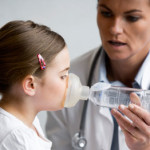Since December of 2019 the coronavirus was first recognized in Wuhan China. It is believed this virus came from the ‘wet markets’ where live animals are kept. There are some theories that the CCP biosecurity labs tested viruses on lab animals and some of them ended up in the wet markets after testing. Whichever the case, the coronavirus has been a rapidly spreading virus, officially declared by the World Health Organization on 11 March as a worldwide pandemic.
What to do if you have symptoms of covid-19 coronavirus?
How the coronavirus will kill and “why we can’t save you”:
You should firstly contact your local health expert, GP or hospital immediately to arrange a test as soon as possible. You should also self isolate and try to keep away from everyone else. If your symptoms are severe you should also advise the health center that you want to come in for ICU or extra medical care. Wear a mask where possible and keep a safe distance from others. Sanitize your hands and keep them off commonly touched surfaces in the vicinity of others. Also people you have come into close contact within 3 days prior to your symptoms should also be tested as a matter of urgency.
Dr. Duc Vuong, a world leading surgeon in Texas with specialties in the field of weight loss and author of 13 books explains the MATH and SCIENCE on the statistics of covid-19 infections and deaths and why the coronavirus death rate will worsen before it gets better.
Navigating the COVID-19 Pandemic: Essential Insights for Nurses and Doctors
The COVID-19 pandemic has proven to be one of the most challenging and transformative events in modern medical history. As healthcare professionals, nurses and doctors have been at the forefront of this battle, providing critical care to those affected by the virus. This article delves into the unique aspects of the pandemic that are particularly relevant to healthcare workers, offering insights and guidelines to help nurses and doctors navigate through these unprecedented times.
- Understanding the Virus
COVID-19 is caused by the severe acute respiratory syndrome coronavirus 2 (SARS-CoV-2). It primarily spreads through respiratory droplets and close contact. Healthcare workers need to understand the virus’s mode of transmission to effectively protect themselves and their patients. Personal protective equipment (PPE) such as masks, face shields, gloves, and gowns play a crucial role in preventing the virus’s spread within healthcare settings.
- Symptoms and Clinical Presentation
Recognizing the spectrum of COVID-19 symptoms is vital for healthcare professionals. While fever, cough, and shortness of breath are common, a range of symptoms like loss of taste or smell, fatigue, and gastrointestinal issues can also manifest. In severe cases, patients may develop pneumonia, acute respiratory distress syndrome (ARDS), and multi-organ failure. Early detection and timely intervention are essential to prevent complications.
- Infection Prevention and Control
Strict infection prevention and control measures are critical in healthcare settings. Regular hand hygiene, proper disinfection of surfaces, and adherence to isolation protocols are imperative to curbing the virus’s spread. Nurses and doctors should educate patients and their families about infection control practices to ensure a safer healthcare environment.
- Patient Triage and Care
Due to the overwhelming number of COVID-19 cases, healthcare professionals have had to adapt their triage and care strategies. It’s important to prioritize patients based on the severity of their condition and allocate resources accordingly. Telemedicine and virtual consultations have also become valuable tools for evaluating and monitoring patients remotely, minimizing exposure risks.
- Ethical Dilemmas
The pandemic has brought forth ethical challenges, such as resource allocation and end-of-life decisions. Nurses and doctors may find themselves in situations where they have to make difficult choices about who receives scarce treatments like ventilators. Open communication, transparency, and following established ethical guidelines are crucial in managing these dilemmas.
- Mental Health and Well-being
The prolonged exposure to high-stress environments can take a toll on healthcare workers’ mental health. Nurses and doctors need to be aware of the signs of burnout, anxiety, and depression among themselves and their colleagues. Institutions should provide mental health resources and support systems to help healthcare professionals cope with the emotional challenges of the pandemic.
- Vaccine Education and Administration
As vaccines against COVID-19 have become available, healthcare professionals play a pivotal role in vaccine education and administration. Nurses and doctors should be well-versed in the different vaccines, their efficacy, and potential side effects. Addressing vaccine hesitancy and providing accurate information can significantly contribute to achieving herd immunity.
- Monitoring and Surveillance
Continuous monitoring and surveillance of COVID-19 trends are essential for adapting strategies and protocols. Healthcare workers should stay informed about the latest guidelines and research findings to provide the best possible care. Regular communication among medical teams can facilitate the exchange of knowledge and best practices.
- Caring for Vulnerable Populations
Certain populations, such as the elderly and individuals with underlying health conditions, are at a higher risk of severe illness from COVID-19. Nurses and doctors should exercise extra caution when treating these patients, ensuring they receive specialized care tailored to their needs. Home healthcare and telehealth services can also benefit vulnerable individuals who need medical attention but are reluctant to visit healthcare facilities.
- Global Collaboration
The pandemic has highlighted the importance of global collaboration in addressing healthcare crises. Nurses and doctors can learn from experiences in different parts of the world and adapt successful strategies to their own settings. International partnerships in research, knowledge sharing, and resource allocation are crucial for effectively managing the pandemic.
Conclusion
The COVID-19 pandemic has transformed healthcare practices and placed unprecedented demands on nurses and doctors. Navigating through this crisis requires a comprehensive understanding of the virus, adherence to infection control measures, ethical decision-making, and prioritizing mental health and well-being. As frontline heroes, healthcare professionals are not only treating patients but also shaping the trajectory of the pandemic through their dedication, knowledge, and resilience. By staying informed, embracing innovation, and fostering a spirit of collaboration, nurses and doctors can continue to provide exceptional care in the face of adversity.






















